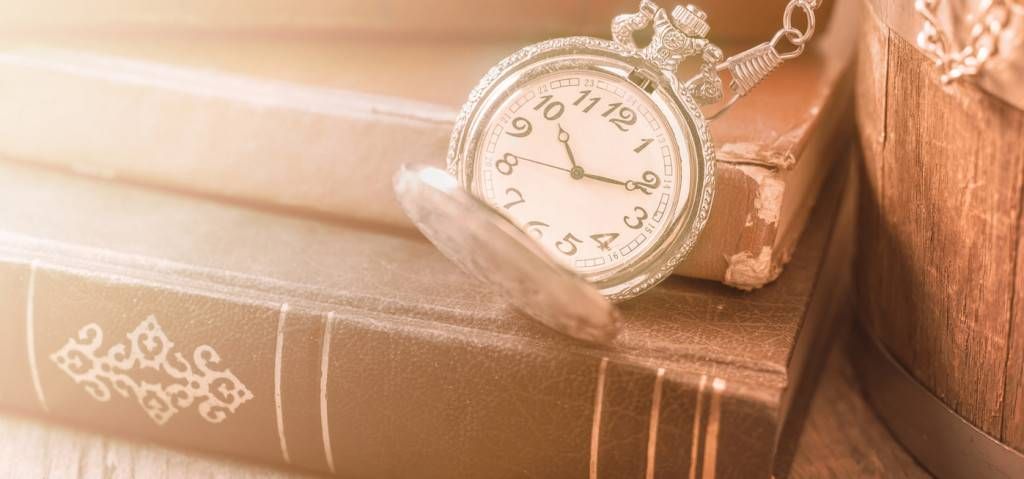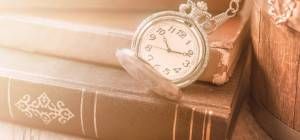
Reading the Right Book at the Right (Or Wrong) Time

It was possibly a combination of any or all of those (excluding the fault of the authors), but mostly it was just me. I’d pick up some novel or collection and give it an honest shot, but then I’d get the tingles and the jingles telling me this just wasn’t working. It didn’t mean necessarily that the writing was bad, but the words wouldn’t…I don’t know, stick. Timing—the great engine of so many of our successes and failures—has an enormous hand in our reading lives, and every once in a while the spark and tinder of a good book and ready reader is matched perfectly enough to change our course.
A small handful of years ago I threw myself an internal doozy of a temper tantrum, resigning to living the rest of my life inside the wrong Simon and Garfunkel song (I am, by nature, a 59th Street Bridge Song person, and you might be, too). But I slammed invisible doors, stomped across imagined floors and holed up with my books and my poetry to protect me. On my metaphysical nametag, I wrote ISLAND in harsh capital letters under HELLO MY NAME IS so people would know just how single and just how busy with reading and art-making I would be from now on. Very single. Very busy. Obviously.
Of all my tantrums, this one was a future Hall of Famer, my friends. But literature was working against it, in secret.
I was, right about that time, preparing to hit the road for several months as a touring actor. A few days before leaving I happened to pick up a book that, like Mercury, had been prograding and retrograding in my TBR pile for a long time. It was Stardust, by Neil Gaiman.
I wanted to be harumphy; I tried to be harumphy. Against the romantic fairy tale adventure story that Neil Gaiman had spiked with the best elements of adult sensibilities (see also: sex, scary magic, a badass unicorn, et al), I had no defense. What do you suppose happens when a young man with a floppy but good-natured heart crosses paths with a feisty and steel-willed young woman who is also a fallen star and then Neil Gaiman, in his gentle and shimmering way, writes it all down for you to read? You might suppose that one’s faith in love is not restored, that one does not feel their little heart grow three sizes in one day, and that one remains happy being a rock, touching no one and being touched by no one.
You might. But you’d be ridiculous, and wrong. Obviously.
I failed right out of Harumphiness 101. I set down my little paperback, with its soft white cover, and I would not be surprised at all if actual stars had started to twinkle their way straight out of my eyeballs. Suffice it to say, I have probably been Victoria Forester as many times as I’ve been Tristran Thorn, but my romantic shortcomings—along with a couple of my better qualities—became so perfectly illuminated that I wanted to write long missives to all those I had spurned, begging forgiveness, and longer ones to those who had spurned me first, absolving them and explaining my understanding of why it could not have ever worked out anyway, and that I still thought they were swell and lovely people. I would have written them all in beautiful cursive scripts, full of as many loops as the joyful mood that overtook me.
I went away, then, on my own adventure to a faraway land (North Carolina, mostly), and while on tour I met a young actor who radiated in her own starry ways. If I had never reached for Gaiman’s book, at long last, I know that I would not have felt bold enough to ever reach for her hand—a hand I still hold regularly.
Neil Gaiman was my wingman. How could I lose?
Great books have been my counselors (I’m looking at you, East of Eden) and they have been my relief when it seemed like life might never be comedic again (that one’s for you, Anansi Boys and most of you, One Mississippi). I haven’t always guessed right (thanks for kicking off my descent into the blackest seasonal affective spiral I’ve ever gone down, The Road) (but it’s okay, The Road, you were still really, really good). And there isn’t a doctor I can consult for a literary prescription after describing my ailments and complaints. But there is the Internet, and there are librarians, and there are people who sell books, and there are readers who seem to have the time and impetus to get through a bazillion of them a month, and I’m willing to take two of whatever they recommend.
Or, uh, I’ll take a chance and go for what feels right at that moment. Because I’m mad, bad, and dangerous to know.
Aren’t we all.














